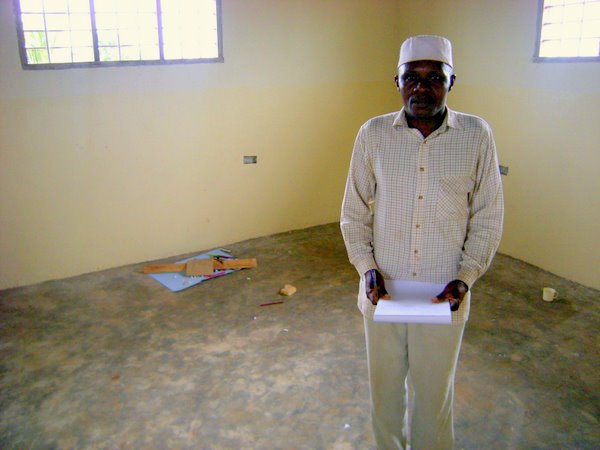Stilgherrian’s links for 16 August 2009 through 26 August 2009:
- Academic Earth: “Video lectures from the world’s top scholars”, it says. Provided they’re American. The universities included so far are Berkeley, Harvard, MIT, Princeton, Stanford, UCLA and Yale.
- [Air-L] Trivial tweeting: Another viewpoint on the “Twitter is pointless babble” rubbish, this time from Cornelius Puschmann, PhD, in the Department of English Language and Linguistics at the University of Düsseldorf.
- Power of Information | UK Cabinet Office: The February 2009 report from the UK government’s taskforce on Government 2.0.
- My #blogpostfriday post | Scripting News: Dave Winer is worried about the cloud. “We pour so much passion into dynamic web apps hosted by companies we know very little about. We do it without retaining a copy of our data. We have no idea how much it costs them to keep hosting what we create, so even if they’re public companies, it’s very hard to form an opinion of how likely they are to continue hosting our work.”
- 8129.0 – Business Use of Information Technology, 2007-08 | Australian Bureau of Statistics: Detailed indicators on the incidence of use of information technology in Australian business, as collected by the 2007-08 Business Characteristics Survey (BCS).
- The Work of Art in the Age of Mechanical Reproduction | Wikipedia: Someone — I forget who — told me to read this 1935 essay by German cultural critic Walter Benjamin. It’s been influential in the fields of cultural studies and media theory. It was produced, Benjamin wrote, in the effort to describe a theory of art that would be “useful for the formulation of revolutionary demands in the politics of art&”. “In the absence of any traditional, ritualistic value, art in the age of mechanical reproduction would inherently be based on the practice of politics. It is the most frequently cited of Benjamin’s essays”, says Wikipedia. Sounds like I should indeed read it.
- How Tim O’Reilly Aims to Change Government | ReadWriteWeb: Tim O’Reilly posits “government as platform”, where the government would supply raw digital data and other forms of support for private sector innovators to build on top of. That’s the writer’s version. Does this fit with the Rudd government’s idea of the government as an enabler, as outlined in their Digital Economy Future Directions paper?
- CHART OF THE DAY: Smartphone Sales To Beat PC Sales By 2011 | Silican Valley Insider: This is based on worldwide sales figures, and it makes sense. The Third World could really use a low-power, rugged smartphone at a sensible price, rather than a laptop or even a netbook to lug around.
- News Corp pushing to create an online news consortium | latimes.com: By “consortium” they mean “cartel”, right? “Chief Digital Officer Jonathan Miller has positioned News Corp as a logical leader in the effort to start collecting fees from online readers because of its success with the Wall Street Journal Online, which boasts more than 1 million paying subscribers. He is believed to have met with major news publishers including New York Times Co, Washington Post Co, Hearst Corp and Tribune Co, publisher of the Los Angeles Times.”
- Us Now : watch the film: “In a world in which information is like air, what happens to power?” This entire film can be watched online.
- Morons with mobiles sour the tweet life | theage.com.au: Jacqui Bunting writes some of the dumbest words about Twitter which have ever been written. Note to editors: Anyone who starts from the premise that Twitter is meant to be a “commentary on life” needs to be taken out the back and slapped around a bit. It’s 2009. Please catch up.
- The Conversation | Now That I Have Your Attention: The creator of Father Ted and The IT Crowd, Graham Linehan, also has a few words on Pear Analytics’ cod research on Twitter. He makes the point that for the first time we’re truly having a global conversation.
- Pointless babble | The New Adventures of Stephen Fry: The redoubtable Stephen Fry rips into that Pear Analytics research on Twitter, with more brevity and wit than I did the other day. Well said, Sir!
- Top 100 Aussie Web Startups – August 09 | TechNation Australia: The latest league table of Australian web businesses, for those who like to have winners and losers in clearly-defined categories.
- Benjamin Franklin’s daily schedule | Flickr: Proof that you don’t need the Getting Things Done (GTD) methodology to be boringly anal-retentive about your scheduling.
- Bruce Schneier: Facebook should compete on privacy, not hide it away | The Guardian: Another thought-provoking essay by Bruce Schneier.
- Hype Cycle Book | Gartner: Mastering the Hype Cycle is the book explaining Gartner’s regular Hype Cycle reports.
- How It All Ends | YouTube: A follow-up to the video The Most Terrifying Video You’ll Ever See, which presented a risk analysis showing that we cannot afford to ignore the potential risk of climate change, even if it all turns out to be wrong. This version skips over the main argument and addresses the potential objections.
- Climate change cage match | Crikey: A delightful comment from a Crikey reader, Stephen Morris, who likens the tactics of climate change denialist Tamas Calderwood to the mating habits of the Satin Bowerbird, which is totally obsessed by the colour blue. “It will actively search through a wide variety of brightly coloured objects that might suitably decorate its bower, but the only colour that interests it and it wants to collect are those coloured blue. Tamas in his scientific objectivity (and unfortunately often his logic) is very Satin bowerbird like. It doesn’t matter what large amounts of available data says about global warming, the only titbits of data of interest to Tamas, are those that can be seen to indicate cooling. Once a data set loses its blueness (or coolness), it seems interest in it is lost and other blue data sets are sought.”
- Senator Lundy describes her Public Sphere initiative | Net Traveller: A ten minute video in which Senator Kate Lundy describes her Public Sphere initiative, made for students at ANU studying Information Technology in Electronic Commerce COMP3410.
- AP contradiction: Move forward but restore | Pursuing the Complete Community Connection: Steve Buttry points out the problem with Associated Press’ content protection plan: How can you “move forward” and “restore the past” at the same time?


